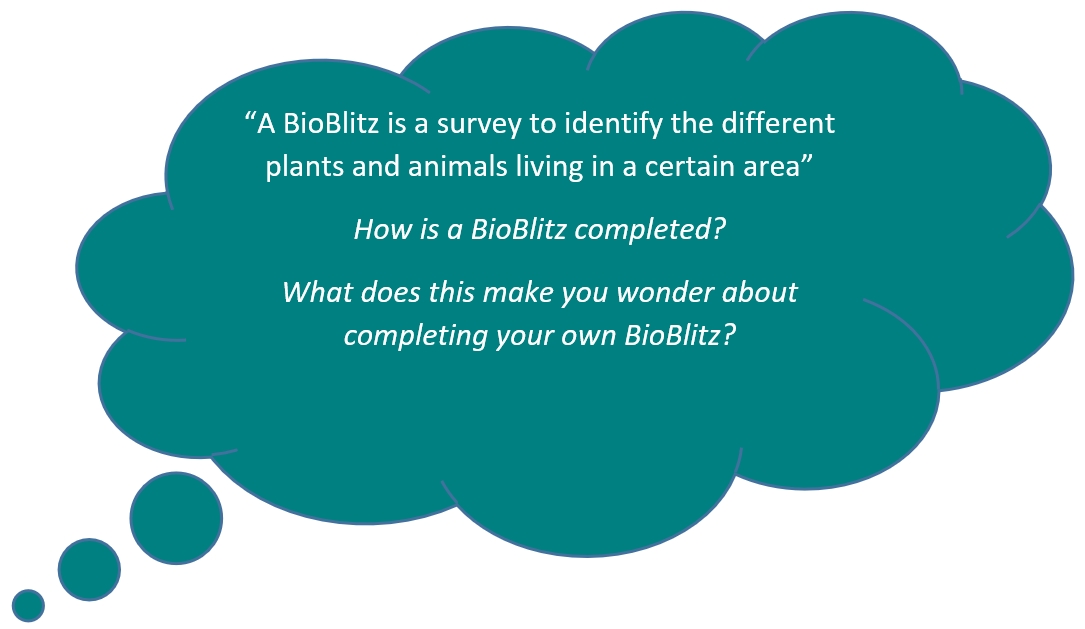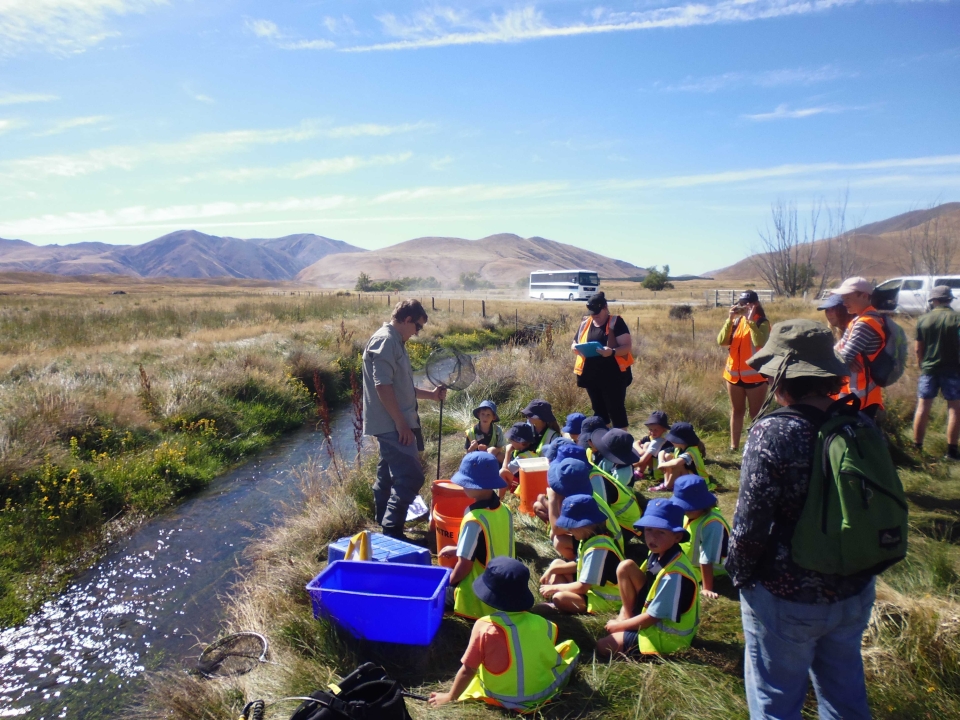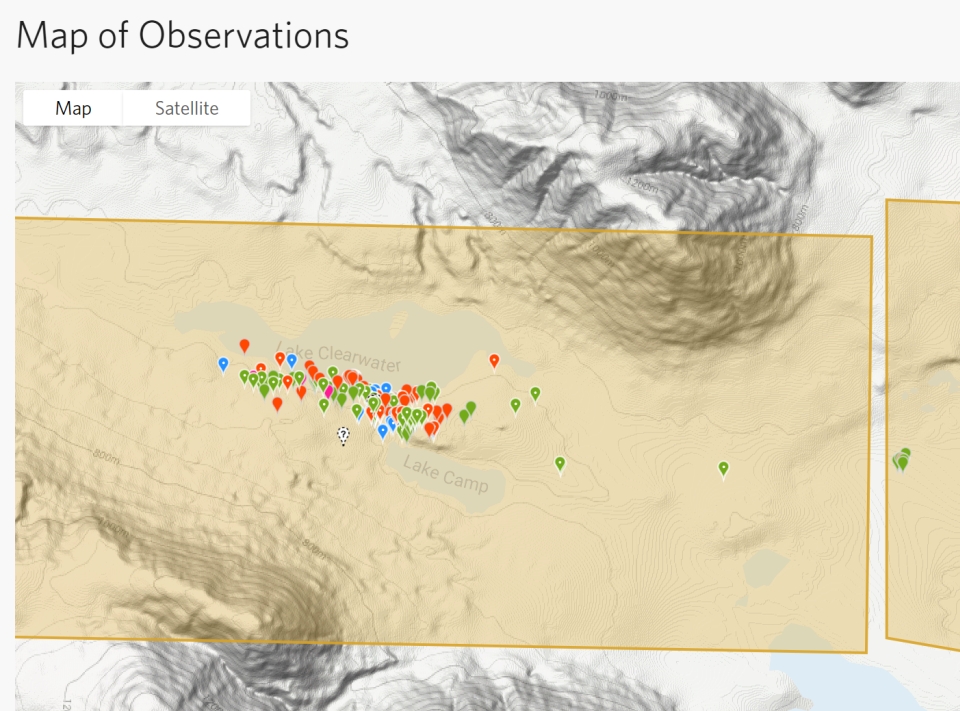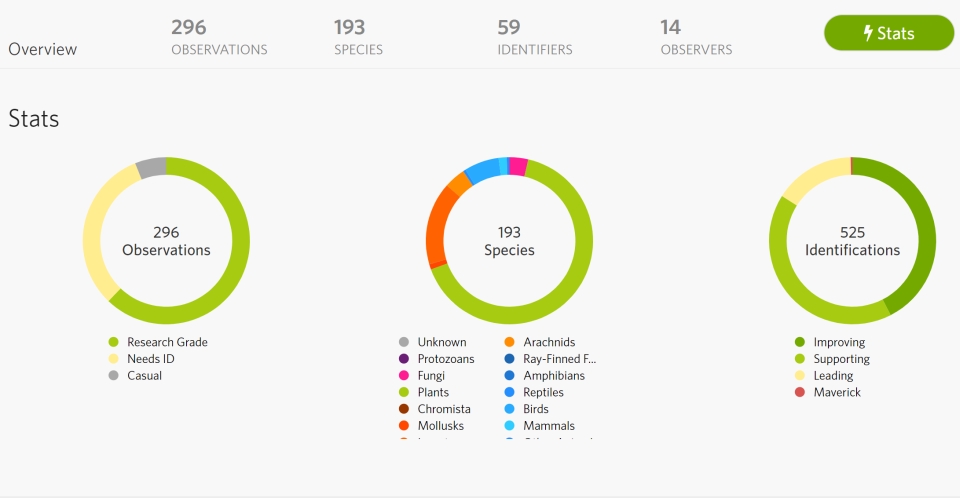A BioBlitz is an event that focuses on finding and identifying as many species as possible in a specific area over a short period of time.
At a BioBlitz, scientists work together with volunteers to get a snapshot of an area’s biodiversity. These events can happen in almost any area; in areas as small as a backyard or as large as a country.
During a BioBlitz, apps such as iNaturalist make collecting photos and information about living things easy. This data is available to anyone and helps scientists and policy makers around the world. The more we know about the species that live in different areas the better we can protect them.
The first BioBlitz in New Zealand was held in Auckland in April 2004. It is a regular annual event in parts of the USA. A BioBlitz allows people to get to know about the variety of plants and animals that live in a certain area.
A BioBlitz brings experts together. It is rare for so many different types of biologists to be able to work together in the same place, at the same time and on the same project.
The searchers
Teams of scientists search around the clock for every species they can find. Nocturnal animals are much easier to find during darkness. Most species can be identified in the field.
Base camp
Base camp is an area set up for scientists and volunteers. This is where data is recorded, and plants and animals can be identified. Microscopes are available to help with identifying species.
The final tally
A BioBlitz survey usually lasts for 24 hours. The final tally of organisms is made and announced as soon as possible.
Valuable data
A BioBlitz gives a list of species found in an area. This information helps people to manage these areas better. It identifies pest species that should be monitored or controlled, and native species that need looking after. It gives information about how much biodiversity the area contains.
Lake Clearwater BioBlitz in Ō Tū Wharekai
Students from Mt Somers Springburn School along with a group from Mount Hutt College took part in a BioBlitz at Lake Clearwater. They found and photographed as many insects, plants, fish, fungi, and birds as they could on the 11th February.
- 296 observations were made

- 193 species were identified
- 59 identifiers and 14 observers were involved
- a total of 525 identifications were made.
Ready for a quiz? Try the "What is a BioBlitz" interactive activity.







